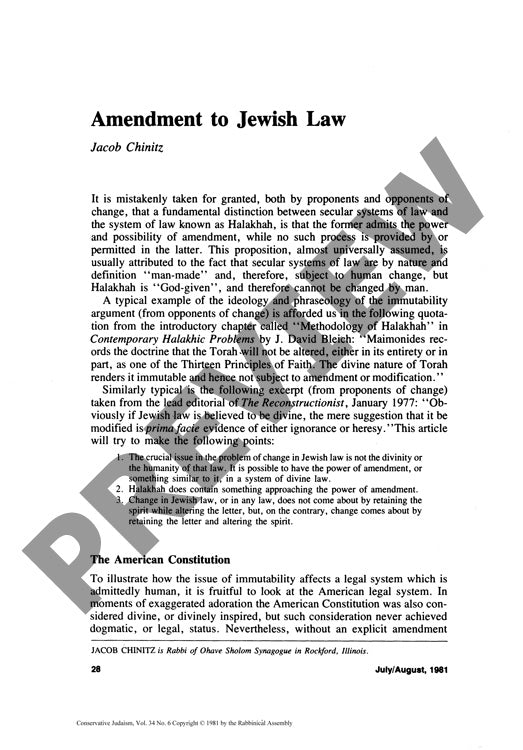Amendment to Jewish Law
Couldn't load pickup availability
The notion that Jewish law cannot evolve because of its divine origins misconstrues the true nature of Halakhah. Rather than divine versus human authorship, the key factor determining legal adaptability is the presence of formal amendment mechanisms. Just as the U.S. Constitution demonstrates how venerated founding documents can incorporate paths to change, talmudic sources—particularly Deuteronomy 17:8-13—reveal an inherent amendment clause empowering Jewish courts with significant legislative authority. Analysis of rabbinic discussions in tractates Yevamoth and Gittin shows these courts historically modified Torah law through both passive omission and active commission when circumstances demanded. Medieval authorities like Albo recognized these legitimate amendment powers within divine law, challenging the artificial distinction often drawn between different modification approaches. The research demonstrates that legal continuity stems from procedural adherence rather than doctrinal immutability. This understanding suggests that leveraging existing talmudic amendatory mechanisms could help bridge contemporary denominational divides while maintaining authentic legal tradition, offering a framework for change that transcends the conventional divine-human origin debate.

More Information
-
Physical Description
-
Publication Information
Published 1981
ISBN
-
Publication Credits
Jacob Chinitz

